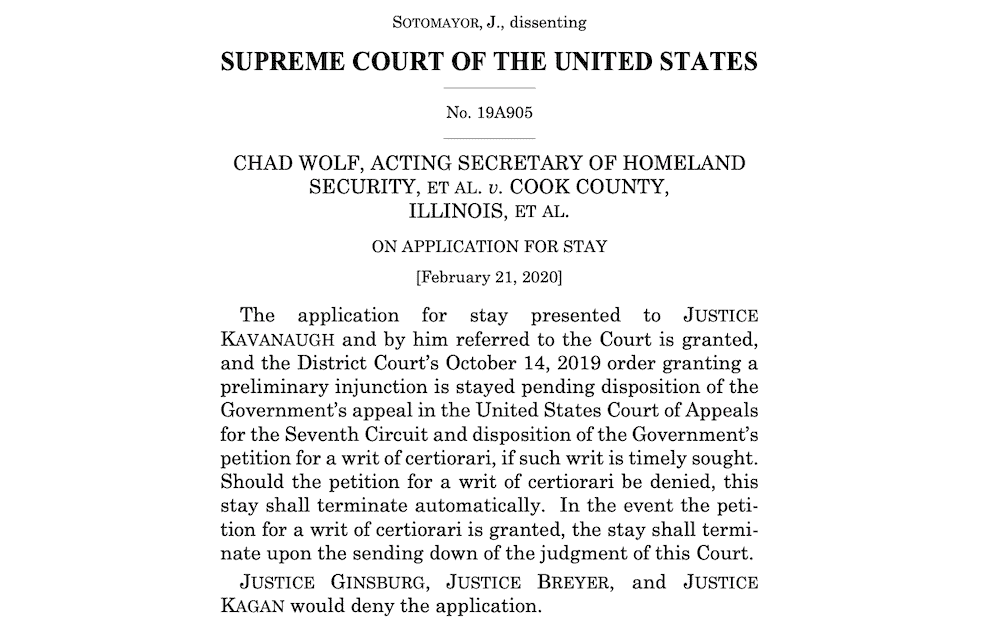Beginning Monday, February 24, 2020, the new "public charge" rule that will allow U.S. Citizenship and Immigration Services (USCIS) officials to deny certain immigration benefits, including permanent residency, to certain immigrants who receive public benefits, such as assistance with food, health or housing programs, goes into effect across the United States.
Implementation of the final Public Charge Inadmissibility rule includes Illinois after Friday, February 21, 2020, the U.S. Supreme Court issued a decision on the The court has also vacated a preliminary injunction that was in effect in that state.
USCIS will now apply the final rule to all applications and petitions postmarked (or issued electronically) on or after February 24, 2020.. For applications and requests sent via commercial courier (e.g., UPS, FedEx and DHL), the postmark date will be the date indicating receipt by the courier service.
The final rule, published on Aug. 14, 2019 and originally scheduled to go into effect on Oct. 15, 2019The Department of Homeland Security (DHS) will determine whether an alien is inadmissible and ineligible to adjust status to permanent resident status in the United States if it believes there is a likelihood that the immigrant will become a public charge in the future.
Significance of the Supreme Court's decision and guidance
For the time being, the Trump Administration will be able to implement the new public charge rule throughout the United States. Litigation in federal courts in various districts around the country will continue and future appeals of those courts' decisions are expected.
Every immigrant who intends to apply for immigration benefits should be evaluated by an experienced and licensed U.S. immigration attorney to determine his or her legal options before beginning any proceedings. This is necessary to determine if the person meets all the requirements, including not being a public charge to the United States.
No one who is receiving public benefits should stop using them for fear of the new public charge rule. Anyone who has received, is receiving, or plans to apply for public benefits in the United States should check with the state office responsible for administering those services where they live to determine their eligibility. Never lie on your applications for public benefits, including hiding assets or income.
I remind you that the new law on public charge has several exemptions and does not apply to U.S. citizens.. It also does not apply to persons applying for permanent residence through humanitarian benefits, asylum seekers, special immigrant juveniles (SIJS), certain victims of human trafficking (T nonimmigrant T visa), victims of qualified criminal activity (U nonimmigrant U visa), or victims of domestic violence (VAWA self-petitioners), among others.
If in doubt, consult with an immigration attorney before canceling or discontinuing your application for public benefits.
[/et_pb_text][/et_pb_column][/et_pb_row][/et_pb_section]
